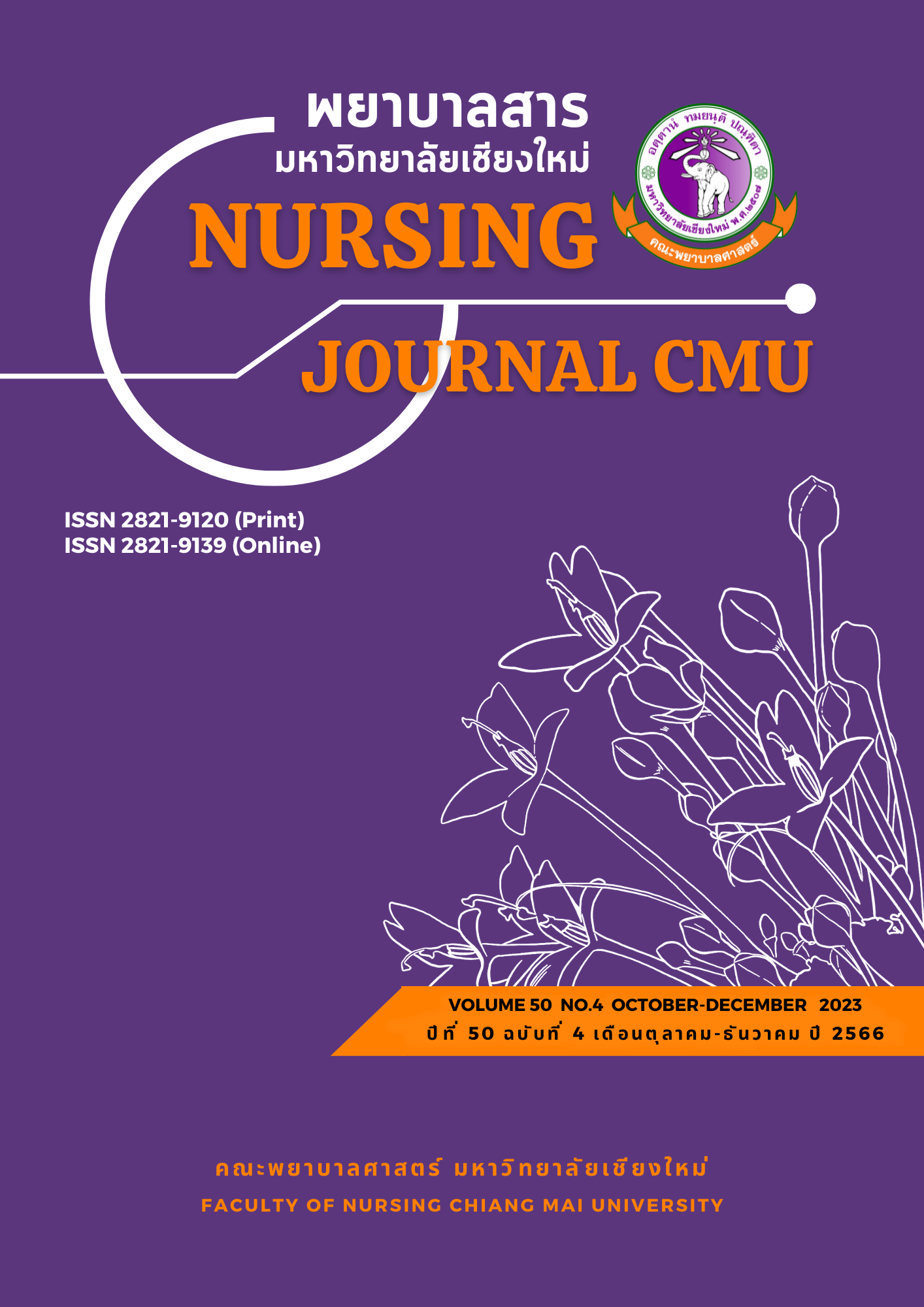Nursing Care of Patients with Neurogenic Shock: Case Study
Keywords:
Nursing care, Patients with neurogenic shock, Case studyAbstract
Neurogenic shock occurs as a result of the loss of sympathetic nervous system control. The primary cause is a traumatic spinal cord injury above the level of T6 to C2, which leads to widespread vasodilation, a reduction in peripheral vascular resistance, bradycardia, and low body temperature while the skin of the peripheral extremities may become warm and dry as the blood vessels relax. This leads to a potentially life-threatening complication.
This paper describes spinal injury, neurogenic shock treatment, nursing assessment, and the role of nurses in managing neurogenic shock. Comprehensive care for patients experiencing neurogenic shock can be made possible through properly applying such information.
References
American College of Surgeons. (2022). Best practice guidelines: Spine injury. https://www.facs.org/media/k45gikqv/spine_injury_guidelines.pdf
Bloom, B. A., & Gibbins, R. C. (2021). Focused assessment with sonography for Trauma. StatPearls.
Coehlo, D. P., & Breen, H. (2018). Trauma and family Nursing. In J. R. Kaakinen, D. P. Coehlo, R. Steele, & M. Robinson (Eds.), Family health care nursing theory, practice, and research (pp. 323-354). Wolters Kluwer.
Lynn, P. (2018). Taylor’s clinical nursing skills a nursing process approach (5th ed.). Wolters Kluwer.
Murgo, M., & Kleinpell, R. (2020). Pathophysiology and management of shock. In L. Aitken, Marshall, & W. Chaboyer (Eds.), Critical care nursing (pp.744-745). Elsevier.
Pennington, S. S., & Frandsen, G. (2018). Abram’s clinical drug therapy rationales for nursing practice (11th ed.). Wolters Kluwer.
Rosenberger, S. R., Rueden, T. V., & Champs, E. S. D. (2018). Shock, systematic inflammatory response syndrome, and multiple organ dysfunction syndrome. In G. P. Morton & D. K. Fontaine (Eds.), Critical care nursing a holistic approach (pp.1049-1070). Wolters Kluwer.
Sharpe, J., & Cole, T. (2019). Traumatic brain injury. In K. Curtis, C. Ramsden, R. Z. Shaban, M. Fry, & J. Considine (Eds.), Emergency and trauma care (pp.1227-1250). Elsevier.
Downloads
Published
How to Cite
Issue
Section
License
Copyright (c) 2023 Nursing Journal

This work is licensed under a Creative Commons Attribution-NonCommercial-NoDerivatives 4.0 International License.
บทความที่ได้รับการตีพิมพ์เป็นลิขสิทธิ์ของวารสารพยาบาลสาร
ข้อความที่ปรากฏในบทความแต่ละเรื่องในวารสารวิชาการเล่มนี้เป็นความคิดเห็นส่วนตัวของผู้เขียนแต่ละท่านไม่เกี่ยวข้องกับมหาวิทยาลัยเชียงใหม่ และคณาจารย์ท่านอื่นๆในมหาวิทยาลัยฯ แต่อย่างใด ความรับผิดชอบองค์ประกอบทั้งหมดของบทความแต่ละเรื่องเป็นของผู้เขียนแต่ละท่าน หากมีความผิดพลาดใด ๆ ผู้เขียนแต่ละท่านจะรับผิดชอบบทความของตนเองแต่ผู้เดียว






